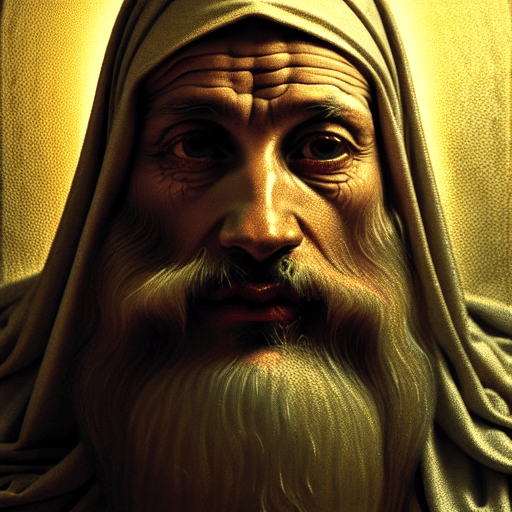Melchizedek: The Enigmatic Priest-King

Melchizedek is an enigmatic figure mentioned in the Bible, particularly in the book of Genesis and the book of Hebrews. He is a fascinating character who holds the dual role of a priest and a king. In this post, we will explore the significance of Melchizedek, his biblical references, and the theological implications surrounding his mysterious identity.
I. Biblical References to Melchizedek:
A. Genesis 14: Melchizedek is first mentioned in Genesis 14, where he appears as the king of Salem (later known as Jerusalem) and blesses Abram (who would become Abraham) after his victory over the kings.
B. Psalm 110: In Psalm 110, Yehovah declares to the Messiah, “You are a priest forever, in the order of Melchizedek.” This psalm hints at a future priestly role in the line of Melchizedek for the coming Messiah.
C. Hebrews 5-7: The book of Hebrews provides the most extensive discussion of Melchizedek. It explores the parallels between Melchizedek and Yeshua, presenting Melchizedek as a type or foreshadowing of Yeshua’s priesthood.
II. Significance and Theological Implications:
A. Priest-King: Melchizedek’s unique role as a priest and king is significant. In the Old Testament, these roles were typically separate, with the priesthood belonging to the descendants of Aaron and the kingship to the descendants of David. Melchizedek represents a rare combination of both offices, foreshadowing Yeshua, who would come as the ultimate Priest-King.
B. Superiority to Abraham: Melchizedek blessed Abraham, who was considered the father of the Israelite nation. This implies that Melchizedek held a position of authority and superiority over Abraham, further elevating his status and pointing to his significance in Yehovah’s redemptive plan.
C. Eternal and Superior Priesthood: The book of Hebrews presents Melchizedek’s priesthood as superior to the Levitical priesthood. It describes Melchizedek as having no recorded genealogy, no beginning or end, and receiving tithes from Abraham. This emphasizes the eternal nature and superiority of his priesthood, prefiguring the eternal priesthood of Yeshua.
III. Symbolism and Foreshadowing:
A. Foreshadowing Yeshua: Melchizedek serves as a type or foreshadowing of Yeshua, highlighting the parallels between their roles and ministries. Both are described as eternal priests, both are associated with righteousness and peace, and both combine the offices of priest and king.
B. Preceding the Mosaic Law: Melchizedek’s priesthood predates the Mosaic Law and the establishment of the Levitical priesthood. This implies that there is a priesthood that exists outside the confines of the law, pointing to the superiority and fulfillment found in Yeshua’s priesthood.
C. Universal Application: Melchizedek’s interaction with Abraham, a precursor of the Israelite nation, suggests a universal significance and application of his priesthood. This underscores the inclusivity of Yeshua’s priesthood, which extends to all people, regardless of ethnicity or lineage.
Conclusion:
Melchizedek is a remarkable figure in Scripture, representing the unique combination of a priest and king. His biblical references, particularly in Genesis and Hebrews, highlight his significance and foreshadowing of Yeshua’s ultimate role as the eternal Priest-King. Melchizedek’s priesthood, with its superiority and eternal nature, prefigures Yeshua’s priesthood, which brings righteousness, reconciliation, and salvation to all who believe. As we reflect on Melchizedek’s mysterious identity and his connection to Yeshua, let us appreciate the depth and beauty of Yehovah’s redemptive plan, finding assurance and hope in the perfect priesthood of our Savior, Yeshua, who is both our eternal High Priest and King.

